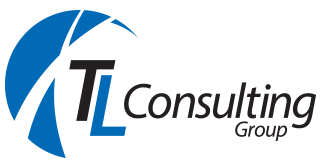Is Microsoft’s OneLake The Answer To Your Data Management?
What is OneLake?
OneLake is Microsoft’s strategic response to the complexities of data storage and management, offering a unified, Software as a Service (SaaS) data lake solution that simplifies organisational data handling. Similar to OneDrive’s approach to file management, OneLake provides a centralised repository for all data types within an organisation. Integrated by default into the Microsoft Fabric tenant, it serves as the core storage solution, streamlining access and management, and reducing the traditional complexities of large-scale data storage.

Key Features of OneLake:
Streamlined Data Management: OneLake alleviates the common headache of data fragmentation, providing a cohesive data landscape.
Saves Time and Effort: Users no longer need to grapple with data scattered across disparate sources and file types.
User-Friendly Interface: OneLake’s interface eliminates the need for extensive expertise in Azure or Fabric, making it accessible to all users.
Support for All Types of Data: Built upon Azure Data Lake Storage (ADLS) Gen2, OneLake offers flexibility in managing structured, unstructured, and semi-structured data.
How OneLake Provides Value:
Enhanced Efficiency: Users experience increased efficiency, especially smaller workforces, who can accomplish tasks that would normally require a larger data team.
Scalability: OneLake allows for easy scaling up or down of storage and processing resources as needs arise and budget allows.
Collaboration: Facilitates collaboration across teams and departments, encouraging seamless data-related projects.
Security and Governance: Robust security measures ensure data protection and compliance with regulatory standards.
Things to Consider About OneLake:
- Data Migration Challenges: Transitioning existing data into OneLake might be complex and resource-intensive, particularly for organisations with large amounts of legacy data or those using different storage solutions.
- Dependence on Microsoft Ecosystem: On the note of different storage solutions, since OneLake is tightly integrated with Microsoft Fabric and other Azure services, there could be concerns about vendor lock-in, which may limit flexibility and choice for organisations in the future.
- Performance and Latency: For organisations operating globally, the centralisation of data storage in specific regions (even with region locking) could introduce latency issues, affecting performance for users in distant locations.
Conclusion:
OneLake represents a significant advancement in data management, offering a unified, efficient, and secure solution that simplifies the complexities of handling diverse data types within organisations. It seamlessly integrates into Microsoft’s ecosystem, enhancing accessibility and reducing the need for extensive technical know-how. Although challenges such as data migration and potential vendor lock-in exist, the benefits of enhanced efficiency, scalability, and robust security position OneLake as a transformative tool for modern data management. As companies adopt OneLake, understanding its integration with Azure services will be crucial to fully leverage its capabilities and foster a new standard in organisational data strategies.
Ready to simplify your data management? Get in touch with one of our data experts and they will help you harness the power of OneLake.
